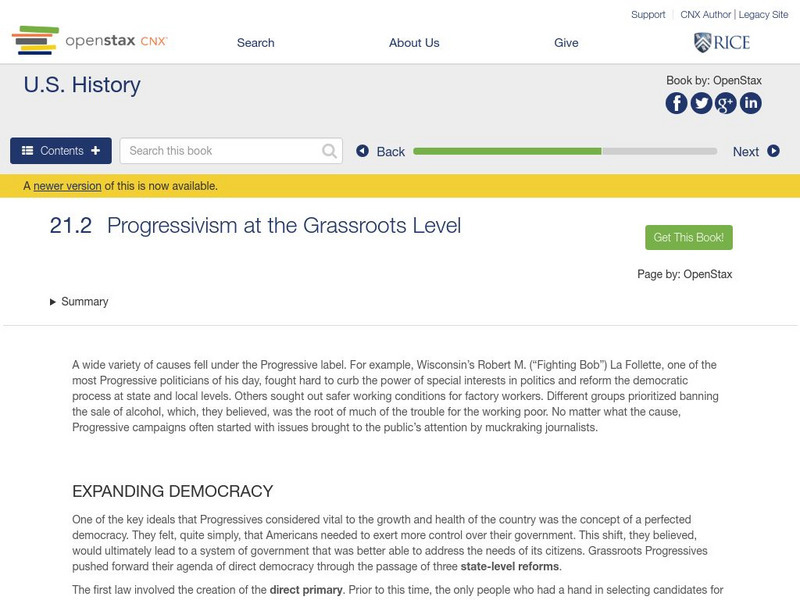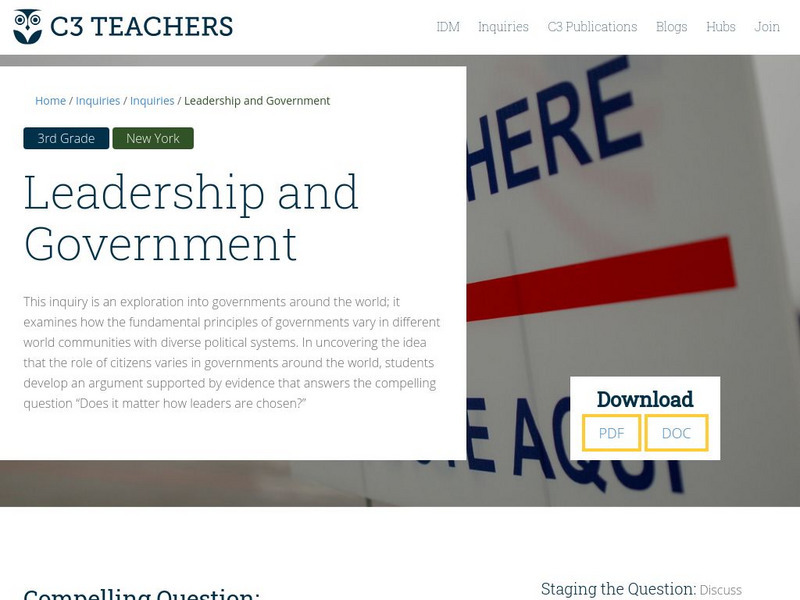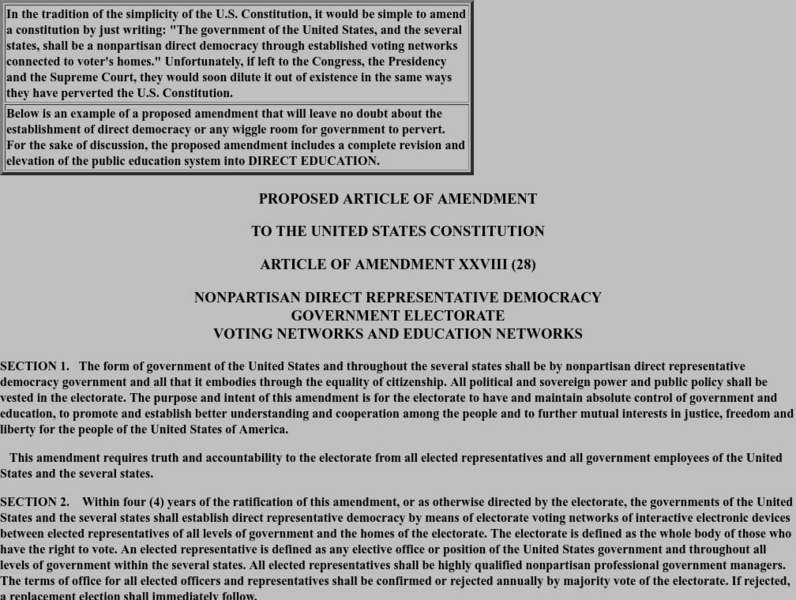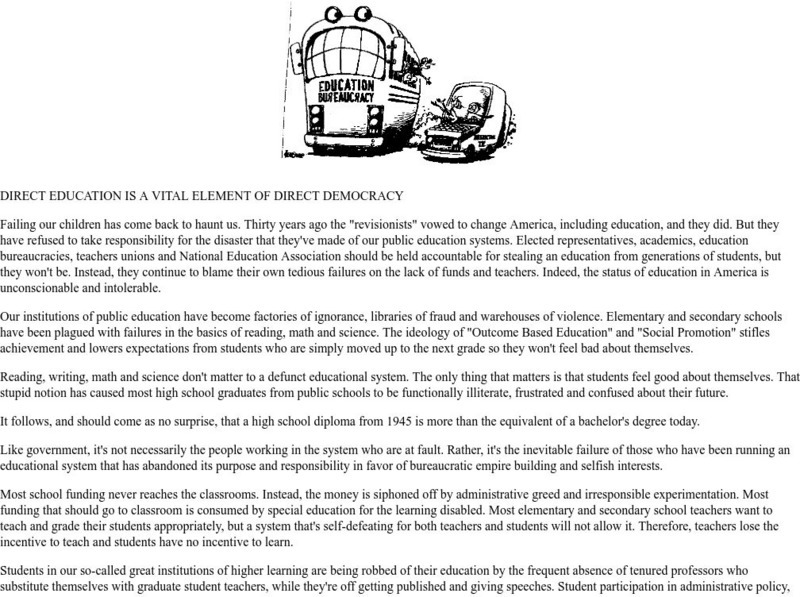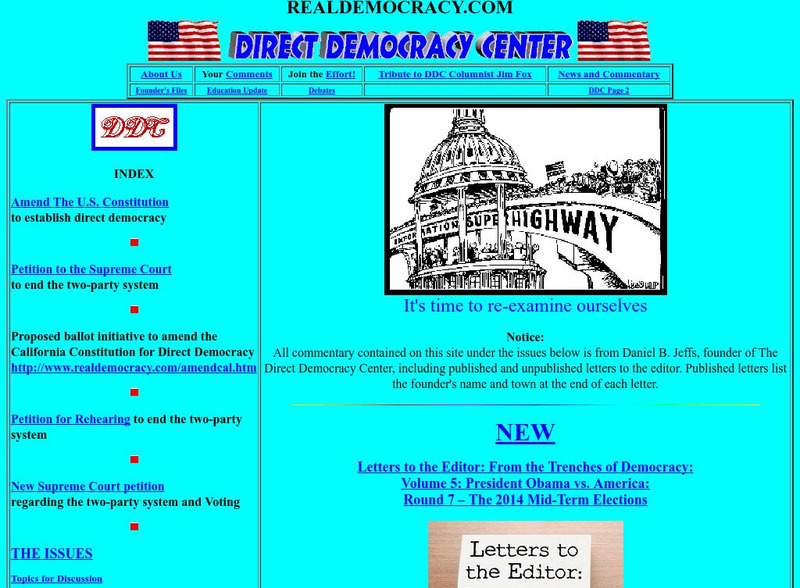Carolina K-12
Doing Democracy
How do you explain democracy to a middle school classroom? A social studies resource breaks elections and the democratic process down for your class. Discussion questions, worksheets, activities that build critical thinking skills, and a...
Carolina K-12
How Do I Pre-Register and Vote in North Carolina?
Did you know that in some states your pupils can pre-register to vote? Teach the advantages to pre-registering and engage the classroom in an intriguing discussion about youth voting trends. Class members participates in a live polling...
Carolina K-12
The Electoral College
Put the Electoral College into perspective with a simulation of an election. Scholars experience an electoral vote, participate in an in-depth discussion on the topic, and engage in a congressional committee where they learn about the...
National Endowment for the Humanities
The Omnipotence of the Majority
While the American system is based on the idea of almost-universal suffrage for adults, great thinkers have had concerns about this system of governance. Using classic writings from Alexis de Tocqueville and videos highlighting thinkers...
Center for Civic Education
Becoming an Informed Voter: Creating Initiatives
Continuing from a previous lesson on how to read and analyze proposed legislation on election ballots, your class members will now practice writing up their own proposals for a new school rule or local ordinance that will be discussed...
OpenStax
Open Stax: Progressive Movement 1890 1920: Progressivism at the Grassroots Level
Read about some of the grassroots movements at the heart of Progressivism, and the changes they were pushing for and what they accomplished. Discusses labor issues, including the tragic Triangle Shirtwaist Factory fire. Also discusses...
C3 Teachers
C3 Teachers: Inquiries: Leadership and Government
A comprehensive learning module on government and how countries get their leaders that includes three supporting questions accompanied by formative tasks and source materials, followed by a summative performance task. Topics covered...
University of Groningen
American History: Outlines: The Measure of Self Government
Discussion about the measure of government effectiveness as a reflection of the electorate involvement, participation and demand.
Wikimedia
Wikipedia: Democracy
A detailed Wikipedia resource on democracy that explains what it is, what the types of democracy are, and gives examples.
Other
Are We a Democracy or a Republic?
An essay on the present political state in America contending the country is leaning further towards a republican form of government instead of a democracy. Defines and explains the major differences between democracy and republicanism...
Other
The Concord Principles: An Agenda for a New Democracy
Read Ralph Nader's views on taking back power from self-serving institutions and the political system. This article written in 1992 sets forth ten arguments of how democracy has been abused and the means by which citizens can regain...
Other
Iri: What Are Ballot Propositions, Initiatives, and Referendums?
This site explains what ballot measures are and the different forms these can take. It also provides lists of states that allow initiatives and legislative propositions.
Center For Civic Education
Center for Civic Education: The Ballot and Questions
This lesson focuses on a voter's need to be fully informed prior to casting a vote on Election Day and how to acquire the necessary information.
iCivics
I Civics: Cradle of Democracy Mini Lesson
No one person invented the kind of government that we have in the U.S. Check out two early governments that inspired the system that we have today: Athenian democracy, and the Roman Republic.
iCivics
I Civics: Who Rules?
Learn about the different forms of government that exist, including democracy, autocracy, oligarchy, and others. Compare and contrast these forms, and look at real-life examples in the world today.
iCivics
I Civics: Lessons From Antiquity
Where did democracy get its start? In this lesson, students learn about direct democracy in Athen's and Rome's republic, how each took shape, and the ideas our Founders borrowed from these great civilizations.
Steven Kreis, PhD
The History Guide: The Athenian Origins of Direct Democracy
A lecture regarding the athenian origins of direct democracy.
Other
Real Democracy: Proposed Article of Amendment Xxvii
Read a "proposed" Article of Amendment XXVII - Nonpartisan Direct Representative Democracy, Government Electorate, Voting and Education Networks. Read this example of a proposed amendment for the establishment of direct democracy and a...
Other
Direct Education Is a Vital Element of Direct Democracy
A politicaly oriented essay on the relationship between direct education and direct democracy. Argues that the disaster of the public school system is due to the practice of republican ideas of government and that the only way to save...
Other
Representative Democracy Has Failed
This politically oriented site outlines the degeneration of American Democracy and the erosion of democratic principles as exemplified by unconstitutional actions on the part of the Federal and State governments, as in the examples of...
PBS
Pbs News Hour: The California Recall Election (Lesson Plan)
A lesson plan in which learners identify basic facts about the structure and history of recall elections in California, and in which they analyze the pros and cons of a gubernatorial recall election.







